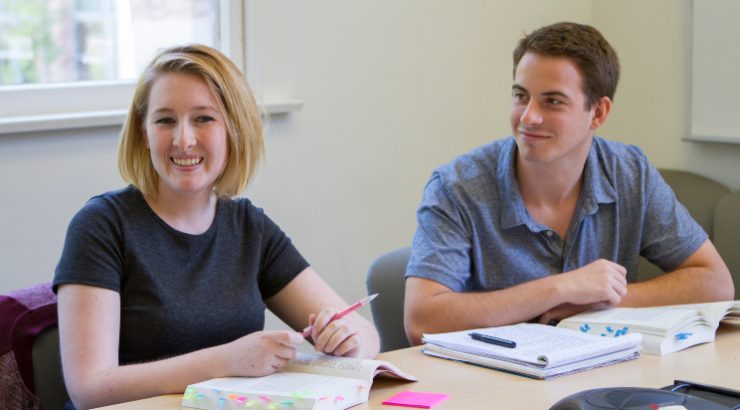
Profiles: Mary Howard A SURF alum talks the elusive nature of owning something
November 23, 2016

SURF fellow Mary-Jean Howard
What does it mean to “own” something? What is property, really? Those are questions that drove Economics major Mary-Jean Howard (’17) through the summer of 2016. Mary was one the sixteen students selected for OURCA’s prestigious Summer Undergraduate Research Fellowships (SURF) program. This intensive, ten-week program offers financial support to fellows so that they can focus on their research and creative activity, while working closely with a faculty expert in the field. Throughout SURF, Mary worked with her mentors, Dr. Bart Wilson and Dr. Jan Osborn.
She first met her mentors in the Humanomics class and grew fascinated by the interdisciplinary work that mixed economics with the humanities. “Humanomics creates a community on campus,” Mary said. One of her favorite aspects of Chapman University is the friendly campus in which supportive intellectual and creative relationships between professors and students thrive.

2002 Nobel laureate in Economic Sciences Dr. Vernon Smith, SURF fellow Mary Howard, and Chapman student/research partner Trent Gerdeman.
Mary’s experiment sprung from the ideas presented in Wilson’s paper “The Meaning of Property and Things,” and from a well-known court case, The Case of the Swans. In the late 1500s, a noblewoman took the Crown to court over the right to wild swans living in her pond. Propelled by her mentor’s work and this case of fowl play, Mary grew fascinated by the idea of property, saying it “is like an extension of yourself. But how can you have property ‘in’ something?” She set off to explore not the legal understanding of property but, rather, how people understand “property as a moral custom.”
Her SURF project focused on how humans understand property across a variety of disciplines. Working with the Economic Science Institute (ESI), Mary studied past papers and experiments, taking note of how people communicated in chat logs and how cooperative they were. When studying the decision-making process, Mary noticed that, even when experiment directions didn’t explicitly use terms like “steal” or “selfish,” the participants repeatedly used these terms. This opened up the understanding of what property is and how it’s tied to the ideas of good/bad and right/wrong.
Now that she’s completed SURF, Mary’s next step is to design a laboratory experiment with ESI, integrating economics, linguistics, law, and a dash of philosophy to explicitly explore these relationships.

Faculty mentors: Dr. Bart Wilson and Dr. Jan Osborn.
Think you’d like to be a subject in a future experiment? Mary urges Chapman students to sign up to participate in experiments with the ESI.
If you’re a student and would like to learn more about SURF or about other ways to fund your own research or creative project, head over to OURCA’s site to see all of our funding opportunities!